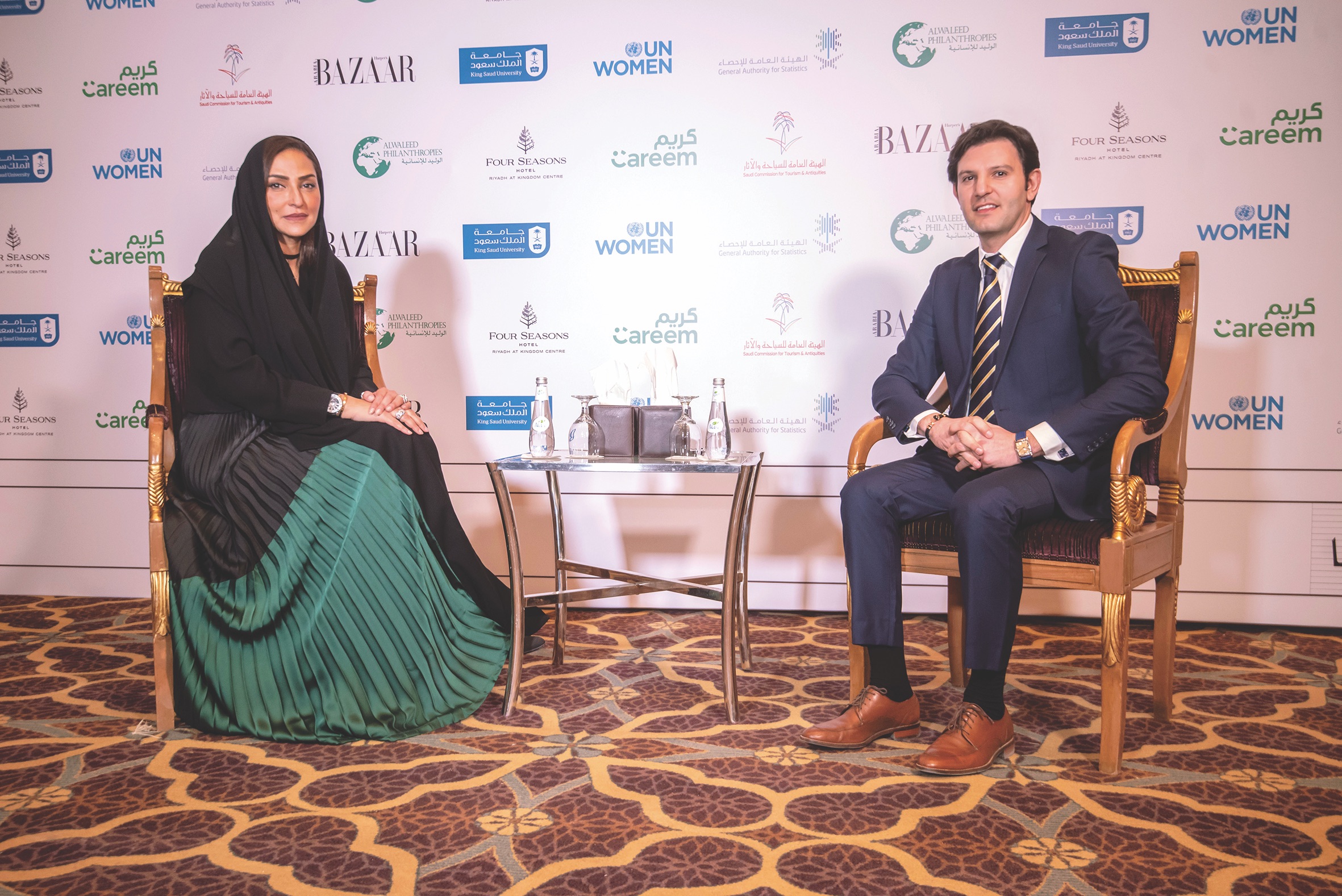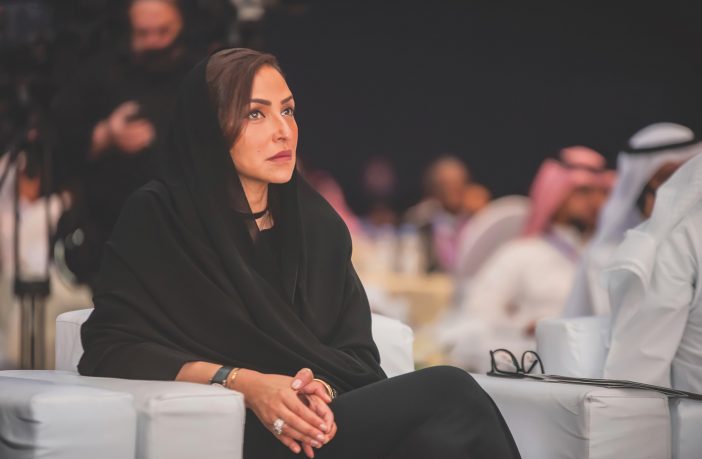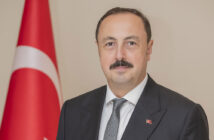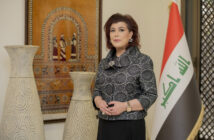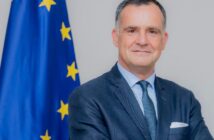BY ALEXANDER WOODMAN
“The children of today will live in a very different Saudi Arabia to the one that we grew up in and we should be proud of this,” says Her Royal Highness Princess Lamia Bint Majed Saud Al Saud, the Champion of Generation Unlimited (UNICEF) and one of the most influential women in the Middle East.
HRH Princess Lamia uses her authority and rank to serve to others, to support women to get higher education, and work, and to protect them from domestic violence. As a Secretary General and member of the Board of Trustees at Alwaleed Philanthropies, HRH Princess Lamia devoted her life and career to charity, humanitarian work, and women empowerment not only in Saudi Arabia but across the world. In a world struggling to overcome difference and discrimination, Alwaleed Philanthropies supports cross-cultural and interfaith programs that use art, history and media to bridge divides and celebrate common values of tolerance and cultural diversity of humanity. She follows the vision and mission of Alwaleed Philanthropies, which are aimed to build bridges for a better world, promoting tolerance, acceptance, and equal opportunities for all, with no gender, race, and religion differences.
With patronage of His Royal Highness Prince Al-Waleed bin Talal bin Abdulaziz al Saud and the delicate and gentle leadership of HRH Princess Lamia, Alwaleed Philanthropies invest in programs that empower women and young people to overcome economic, cultural, and societal barriers so they can contribute to all aspects of society. The concept is structured to invest in individuals from day one, to help them fulfil their potential, and to support the wider development of community and economy of the country.
From 2018, HRH Princess Lamia on behalf of Alwaleed Philanthropies joined the UN Women’s flagship initiative, “Making Every Woman and Girl Count.” This project is focused in strengthening the monitoring and implementation of research and data on gender equality around the world. The next objective of the partnership with UN Women’s for HRH Princess Lamia is to share the real stories, the real change happening on the ground in the Kingdom.
While working on the initial research phase of the project, the team of HRH Princess Lamia found that it was necessary to add an additional pillar to those commonly found in gender indices – social pillar. This pillar analyzes women’s engagement and contributions to society and their community. As it was highlighted by HRH Lamia: “Our talent and energy are vital to the development of our society and economy.”
You have been assigned as a Speaker the World Tolerance Summit to be held in November in the United Arab Emirates. Can you tell us about that?
I believe tolerance is about finding common ground rather than fighting over areas where we disagree. It’s about respect. It’s about trust. It’s about finding ways to make a better future rather than dwelling on the past. The World Tolerance Summit is an important and much-needed forum to discuss how we can achieve global peace and security. The theme of this year’s summit is “Tolerance in Multiculturalism: Achieving the Social, Economic and Humane Benefits of a Tolerant World.” How can people learn how to build bridges of tolerance and accept cultural diversity? Can this genuinely lead to a prosperous co-existence and sustainable world? I believe my role on the board highlights the significant role non-governmental organizations such as Alwaleed Philanthropies can play in shaping beliefs and attitudes to avoid or resolve the conflicts that can take root when social, economic and political differences exist. In a world struggling to overcome difference and discrimination, Alwaleed Philanthropies supports cross-cultural and interfaith programs that use art, history and media to bridge divides and find and celebrate our common values. Only by working together can we build bridges of tolerance and harness cultural diversity to create a richer, more fulfilling world.
One of the central goals of Saudi Vision 2030 is to provide equal opportunities for men and women. What is your vision regarding gender equality?
Vision 2030 recognizes that gender equality is key to ensuring a thriving economy and a vibrant society. Gender statistics are key to developing policies. In September 2018, Alwaleed Philanthropies partnered with UN Women to deploy its ground-breaking public-private initiative called ‘Making Every Woman and Girl Count’ which aims to support faster, more efficient implementation of the UN sustainable development goals – the universal roadmap adopted by world leaders in 2015 to achieve sustainable development by 2030. Today, less than a third of the data needed for monitoring the gender-specific commitments in the SDGs is available, with six of the SDGs having no indicators that explicitly mention women and girls. The lack of good quality, readily available gender data hampers monitoring efforts and threatens the progress towards global commitments. In Saudi Arabia, our data collection program had fifty-six items which were used to evaluate the extent of Saudi women’s involvement in five ‘pillars of development’ – economy, healthcare, education, legislation and social. The results of the study were announced at a conference in Riyadh in May with the title ‘The Role of Women in Development: Towards a Vibrant Society.’ Using a gender parity indicator (GPI) for each of the five pillars of development, the results revealed a relatively high overall disparity between men and women in the kingdom. Women were virtually absent in the field of legislation and participated much less than men in the areas of economy and social. In contrast, women’s participation in education and healthcare was found to be only very slightly lower than that of men.
How does Alwaleed Philanthropies empower Saudi women?
By way of example, we are helping Saudi women enter the workforce by providing vehicles for female drivers who want to work with Careem, the regional transportation network company. We also provide training in vehicle maintenance and hope to train as many as 1,000 women in these skills.
What advice would you give to women who may aspire to leadership roles?
One of our initiatives at Alwaleed Philanthropies, the ‘Hero Next To Hero’ campaign, was launched to change negative perceptions about women and girls and promote the idea of gender equality. I believe we need to recognize and understand the potential in everyone to achieve great things. We need to challenge stereotypes and encourage a genuine respect and desire for equality from the youngest age possible. The children of today will live in a very different Saudi Arabia to the one that we grew up in and we should be proud of this. Our country is still young. Only fifty years ago Riyadh was a small village in which women didn’t have much of an opportunity. We have come incredibly far, very fast. At the Saudi Women in Development conference, we heard from Saudi female leaders at Microsoft, the first female Saudi ambassador to the United States and female academic professors. My advice for Saudi women is to believe in yourself. Saudi women are strong. We understand what we want and how we can get there by working together. This is the foundation for leadership.
